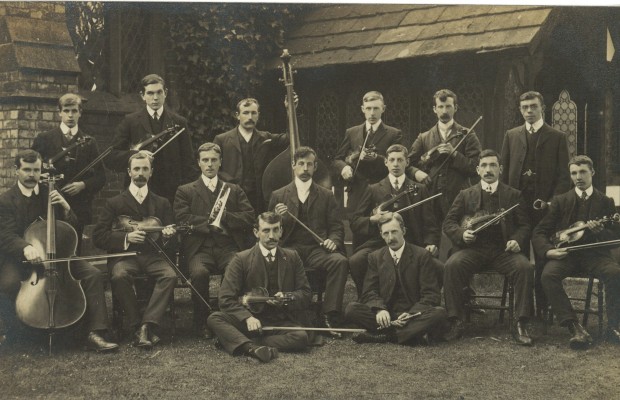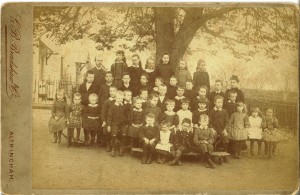- Home
- News
- What’s On
- Activities for Children
- Arts & Crafts
- Autos and Bikes
- Business events
- Car Boot & Auctions
- Charity events
- Churches & Religious
- Comedy
- Dance
- Days out & Local interest
- Education
- Exhibition
- Film
- Gardening & Horticulture
- Health
- Markets & Fairs
- Music
- Nature & Environment
- Spiritual
- Sport
- Talks and Discussions
- Theatre and Drama
- Business
- Local Information
- Jobs
- Deaths
- Charity events
- Contact Us
New book reveals secrets of Quarry Bank’s past

Styal orchestra – the Norcliffe Chapel String Band (the chapel was in Styal and a large part of village life) Ⓒ Quarry Bank Archive
A fascinating new book has revealed more secrets about the history of one of Cheshire’s most historic properties.
Life in Styal focusses on the people that made Quarry Bank Mill a powerhouse of the Industrial Revolution – a period that changed the lives of thousands of people in the 19th and 20th centuries.
Using archives that detail the lives of both the workers and mill owners, the book tells how the Gregs built an empire from Wilmslow and also includes more anecdotal stories about life at the time.
“These were the people at the heart of the Industrial Revolution so their lives and actions have great significance for us today,” said Ally Tsilika, who helped research and co-write the book.
“Sometimes it is easy to think of Quarry Bank as a mill and not as a workplace full of skilled and hardworking people. This book aims to give people more of an idea about their work and an insight into how they lived.”
Among the more amusing tales in the book is how gossiping in the streets of Styal became virtually impossible during the mill’s lifespan because workers had become so adept at lip reading at work because of the noisy mill machinery.

Styal school – picture shows children from the village school taken in the early 20th century (c) Quarry Bank Archive
Records also reveal the Gregs’ strict approach to alcohol in the early 1900s. In a speech Henry Greg referenced The Ship Inn – a pub that is still doing business today and that he managed at the time.
Henry Greg paid his landlord a bonus based on the number of soft drinks he could sell each year.
“As long as I can remember, I have regarded drunkenness as the greatest social curse in this country,” he told those gathered at the village hall.
“I have come to the conclusion the only cure is education. A well-educated man shuns drink as a healthy man shuns smallpox.”
A more serious side to Quarry Bank’s history is the punishments dealt out to workers as well as the social and political change that it witnessed over the decades.
Life in Styal also takes the reader through a typical mill worker’s day, investigates health and safety in the 1800s as well as the importance religion played in daily life.
“We hope everyone enjoys reading the book as much as we enjoyed researching and writing it,” said Ally.
Quarry Bank is selling the book in its shop priced £4.50.


You must be logged in to post a comment Login